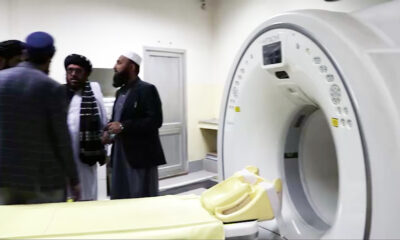Regional
Paktia tribes end longstanding dispute
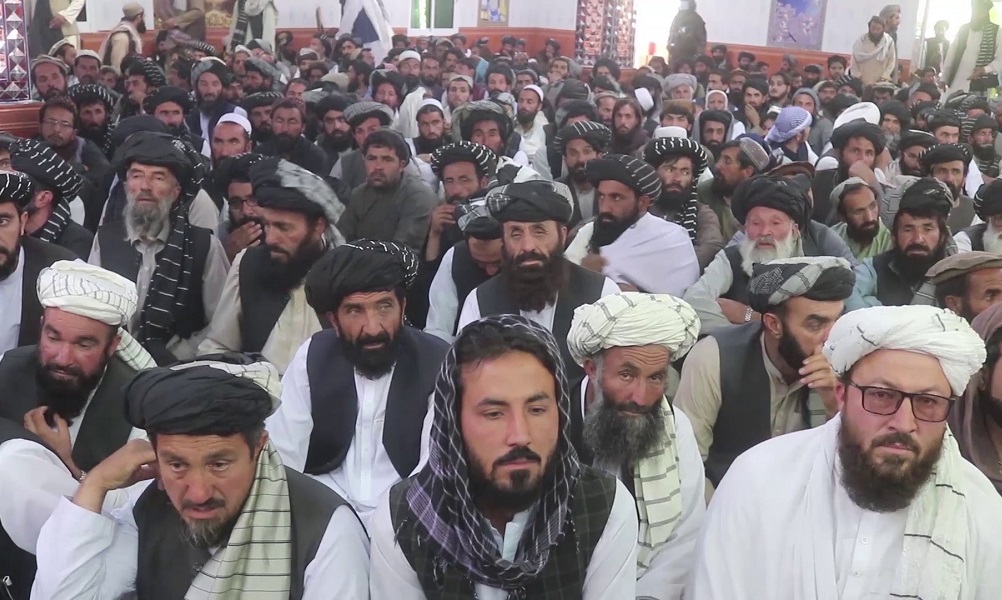
The Islamic Emirate of Afghanistan (IEA) has helped end a longstanding dispute between two tribes in eastern Paktia province.
Members of the Saro Kheil and Sultan Kheil tribes, who had a 60-year dispute, gathered at a ceremony in Gerda Seray district of Paktia and reconciled with each other.
During the event, Anas Haqqani, a senior member of the IEA, said that provincial committees would be established to help end longstanding tribal disputes.
He said that disputes have been noted and the government in cooperation with tribal elders would help resolve them.
Acting Interior Minister Sirajuddin Haqqani meanwhile stressed the importance of unity and urged tribal elders to revive the tradition of holding Jirgas (assemblies) for reconciliation.
Local officials said that IEA opponents have previously used tribal and family disputes to advance their objectives but now the disputes should be resolved peacefully.
“We will dispatch a peace convoy from here, we will take this to southern provinces and all over Afghanistan. We should turn the 20-year hostility into brotherhood,” said Abdullah Mukhtar, the governor of Paktika.
Regional
Iranian president lands in Pakistan for three-day visit to mend ties
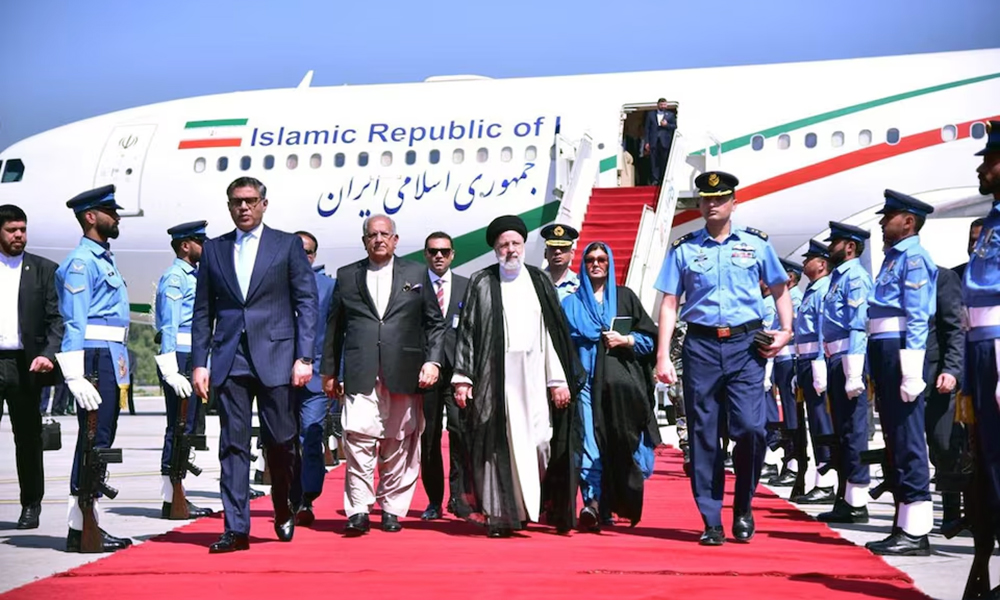
Iranian President Ebrahim Raisi arrived in Islamabad on Monday on a three-day official visit, the foreign office said, amid tight security in the Pakistani capital, Reuters reported.
The visit, which Pakistan’s foreign office said would run until Wednesday, comes as the two Muslim neighbours seek to mend ties after unprecedented tit-for-tat military strikes this year.
“The Iranian president is accompanied by his spouse and a high-level delegation,” Pakistan’s foreign ministry said in a statement, adding that the group also included the foreign minister, other cabinet members and senior officials.
Raisi will meet Prime Minister Shehbaz Sharif and other officials, besides visiting the eastern city of Lahore and southern port city of Karachi, it added.
Major highways in Islamabad were blocked as part of the security measures for Raisi’s arrival, while the government declared a public holiday in Karachi, read the report.
Raisi’s visit is a key step towards normalising ties with Islamabad, but Iran’s supreme Leader Ayatollah Ali Khameni, not the president, has the last say on state matters, such as nuclear policy.
Tension is also high in the Middle East after Iran launched an unprecedented attack on Israel a week ago and central Iran in turn suffered what sources said was an Israeli attack on Friday.
Pakistan and Iran have had a history of rocky relations despite a number of commercial pacts, with Islamabad being historically closer to Saudi Arabia and the United States.
Their highest profile agreement is a stalled gas supply deal signed in 2010 to build a pipeline from Iran’s South Fars gas field to Pakistan’s southern provinces of Balochistan and Sindh, Reuters reported.
Despite Pakistan’s dire need of gas, Islamabad has yet to begin construction of its part of the pipeline, citing fears over U.S. sanctions – a concern Tehran has rejected.
Pakistan said it would seek waivers from the U.S., but Washington has said it does not support the project and warned of the risk of sanctions in doing business with Tehran.
Faced with the possibility of contract breach penalties running into the billions of dollars, Islamabad recently gave the go-ahead for construction of an 80-km (50-mile) stretch of the pipeline.
Regional
Iran’s foreign minister downplays drone attack, says Tehran investigating
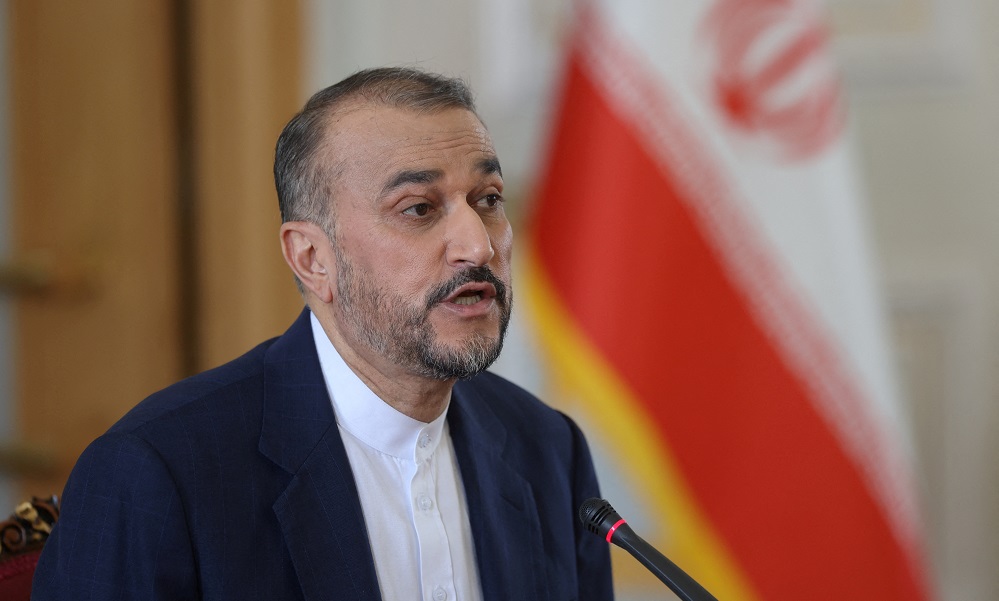
Iran’s foreign minister on Friday said Tehran was investigating an overnight attack on Iran, adding that so far a link to Israel had not been proven as he downplayed the strike.
Iranian Foreign Minister Hossein Amirabdollahian told NBC News the drones took off from inside Iran and flew for a few hundred meters before being downed, Reuters reported.
“They’re … more like toys that our children play with, not drones,” Amirabdollahian said.
“It has not been proved to us that there is a connection between these and Israel,” he said, adding that Iran was investigating the matter but that media reports were not accurate, according to Tehran’s information.
Iranian media and officials described a small number of explosions, which they said resulted from air defenses hitting three drones over Isfahan in central Iran in the early hours of Friday. They referred to the incident as an attack by “infiltrators”, rather than by Israel, obviating the need for retaliation.
Amirabdollahian warned that if Israel retaliated and acted against the interests of Iran, Tehran’s next response would be immediate and at maximum level.
“But if not, then we are done. We are concluded,” he said.
The attack appeared to target an Iranian Air Force base near the city of Isfahan, deep inside the country, but without striking any strategic sites or causing major damage.
Israel has said nothing about the incident. U.S. Secretary of State Antony Blinken said the United States had not been involved in any offensive operations, while the White House said it had no comment.
Regional
Israeli missiles hit site in Iran, ABC News reports

Israeli missiles have hit a site in Iran, ABC News reported late on Thursday, citing a U.S. official, while Iranian state media reported an explosion in the center of the country, days after Iran launched a retaliatory drone strike on Israel, Reuters reported.
Reuters could not immediately confirm the reports.
Iran’s Fars news agency said an explosion was heard at an airport in the central city of Isfahan but the cause was not immediately known. Iran suspended flights over the cities of Isfahan, Shiraz and Tehran, state media reported.
Several Iranian nuclear sites are located in Isfahan province, including Natanz, centerpiece of Iran’s uranium enrichment program, read the report.
Tehran’s Imam Khomeini International Airport was closed to all flights until 0700 GMT, according to a notice to airmen posted on a U.S. Federal Aviation Administration database.
Some Emirates and Flydubai flights that were flying over Iran early on Friday made sudden sharp turns away from the airspace, according to flight paths shown on tracking website Flightradar24.
Israel had said it would retaliate, opens new tab against Iran’s weekend attack, which involved hundreds of drones, opens new tab and missiles in retaliation for a suspected Israeli strike on its embassy compound in Syria. Most of the Iranian drones and missiles were downed before reaching Israeli territory.
Analysts and observers have been raising concerns about the risks of the Israel-Gaza war spreading into the rest of the region.
Iran told the United Nations Security Council on Thursday that Israel “must be compelled to stop any further military adventurism against our interests” as the U.N. secretary-general warned that the Middle East was in a “moment of maximum peril.”
Oil prices and jumped on the reports of the Israeli strike. Brent crude futures rose 2% to $88.86 a barrel, the dollar gained broadly, gold rose 1% and S&P 500 futures dropped 1%, Reuters reported.
Israel’s assault on Gaza began after Palestinian Islamist group Hamas attacked Israel on Oct. 7, killing 1,200, according to Israeli tallies. Israel’s military offensive has killed over 33,000 Palestinians in Gaza, according to the local health ministry.
Iran-backed groups have declared support for Palestinians, launching attacks from Lebanon, Yemen and Iraq, read the report.
-
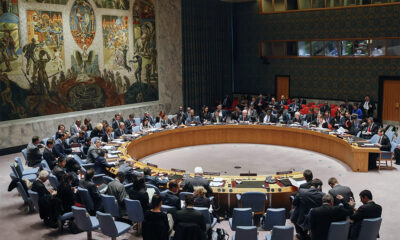
 World5 days ago
World5 days agoUN Security Council to vote Friday on Palestinian UN membership
-

 Business4 days ago
Business4 days agoCommerce ministry inks 10 MoUs to boost development of small and medium-sized businesses
-

 Sport4 days ago
Sport4 days agoRashid Khan threatens BBL pullout after Australia postpones Afghanistan T20I series
-

 Latest News5 days ago
Latest News5 days ago2023 marred by ‘tremendous challenges’ for Afghanistan
-

 Sport5 days ago
Sport5 days agoAfghanistan loses 3-1 to Iran in Futsal Asian Cup match
-

 Latest News4 days ago
Latest News4 days agoOver 6,000 acres of land cleared of poppies in Badakhshan
-

 Health5 days ago
Health5 days agoBalkh health officials report sharp increase in number of cancer patients
-

 Latest News4 days ago
Latest News4 days agoMSF ‘deeply concerned’ over new phase of deportations of Afghans from Pakistan










